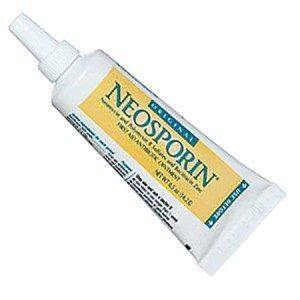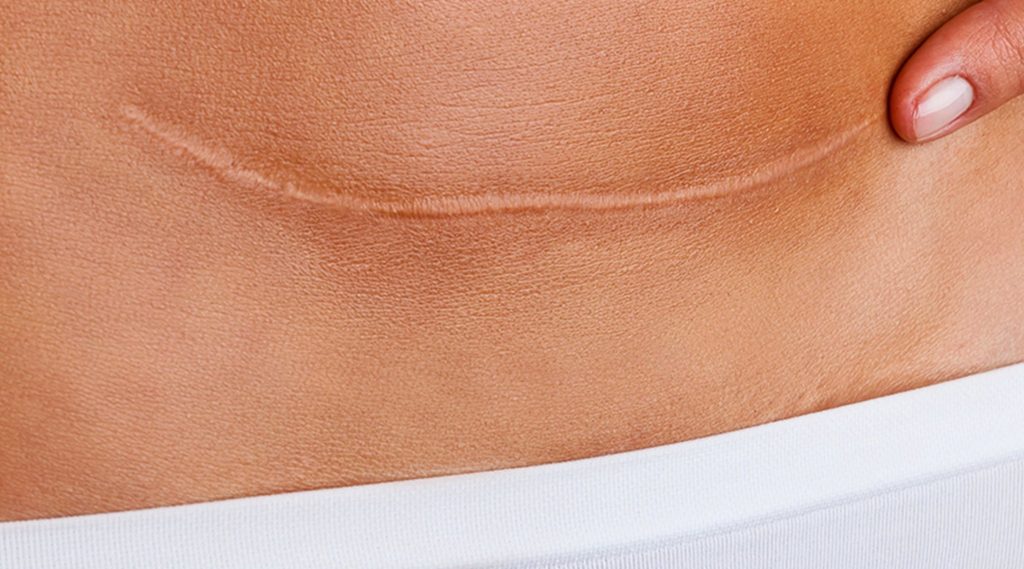is it ok to put neosporin on c section incision Is it ok to put neosporin on a cold sore? by stellalayla970
Hey there pet parents!
Have you ever wondered if it’s safe to use Neosporin on our furry friends? Well, you’re in luck because today we’re going to tackle this commonly asked question.
Can I Put Neosporin On My Dog?
Neosporin is a popular over-the-counter antibiotic ointment that many of us keep in our medicine cabinets. It’s commonly used to treat minor cuts, scrapes, and burns in humans, but is it safe for our four-legged companions?
 The short answer is, yes! Neosporin is generally safe to use on dogs.
The short answer is, yes! Neosporin is generally safe to use on dogs.
However, before you grab that tube of Neosporin and begin applying it to your dog’s wounds, there are a few important things to consider:
Consult Your Veterinarian
It’s always best to consult your veterinarian before using any new medication or ointment on your dog. Your vet knows your pet’s medical history and can provide specific advice tailored to your furry friend’s needs.
Read the Label Carefully
When using Neosporin on your dog, make sure to choose the plain Neosporin ointment without any added pain relief ingredients. Certain ingredients, such as lidocaine, can be toxic to dogs if ingested.
 Check the Expiration Date
Check the Expiration Date
Expired Neosporin, just like any expired medication, can potentially harm your dog. Make sure to check the expiration date before using Neosporin on your pup.
Apply Sparingly
A little goes a long way when it comes to Neosporin. Apply a thin layer to your dog’s wound and cover it with a bandage, if necessary. Avoid using Neosporin on deep wounds, puncture wounds, or near the eyes.
Monitor for Any Adverse Reactions
After applying Neosporin to your dog, keep a close eye on them for any signs of an allergic reaction. This includes excessive itching, redness, swelling, or difficulty breathing. If you notice any of these symptoms, contact your veterinarian immediately.
Please note that Neosporin is not intended for internal use, so avoid applying it to your dog’s skin if they have any open wounds or sores that they might lick or ingest the ointment. Ingesting Neosporin can lead to gastrointestinal upset or even toxicity.
To wrap things up, Neosporin can be a valuable addition to your dog’s first aid kit when used properly. However, it’s essential to consult your vet, read the label, check the expiration date, apply sparingly, and monitor for any adverse reactions.
We hope this information has been helpful to you, but always remember, when it comes to your dog’s health and well-being, it’s better to be safe than sorry. Give your furry friend a big hug from us!
If you are searching about Can I Put Neosporin On My Dog? | Is Neosporin Safe For Dogs? you’ve came to the right place. We have 5 Pictures about Can I Put Neosporin On My Dog? | Is Neosporin Safe For Dogs? like Is it OK to Use Expired Neosporin? | Health, fitness tips, Health, c section incision infection and also Is It OK To Put Neosporin On A Cold Sore? by stellalayla970 - Issuu. Here it is:
Can I Put Neosporin On My Dog? | Is Neosporin Safe For Dogs?
 canigivemydog.comneosporin dog antibiotic overnight acne used dogs dramatically heals cure miracle use put cuts face apply but ointment when cream
canigivemydog.comneosporin dog antibiotic overnight acne used dogs dramatically heals cure miracle use put cuts face apply but ointment when cream
Is It OK To Put Neosporin On A Cold Sore? By Stellalayla970 - Issuu
 issuu.comneosporin cold
issuu.comneosporin cold
C Section Incision Infection
 parentinghealthybabies.comIs It OK To Use Expired Neosporin? | Health, Fitness Tips, Health
parentinghealthybabies.comIs It OK To Use Expired Neosporin? | Health, Fitness Tips, Health
 www.pinterest.comexpired neosporin consumerreports
www.pinterest.comexpired neosporin consumerreports
Is Neosporin Safe For Dogs? What You Should Know About It?
 www.cleverpuppytraining.comneosporin know burns scrapes excruciating
www.cleverpuppytraining.comneosporin know burns scrapes excruciating
Is neosporin safe for dogs? what you should know about it?. Neosporin cold. C section incision infection